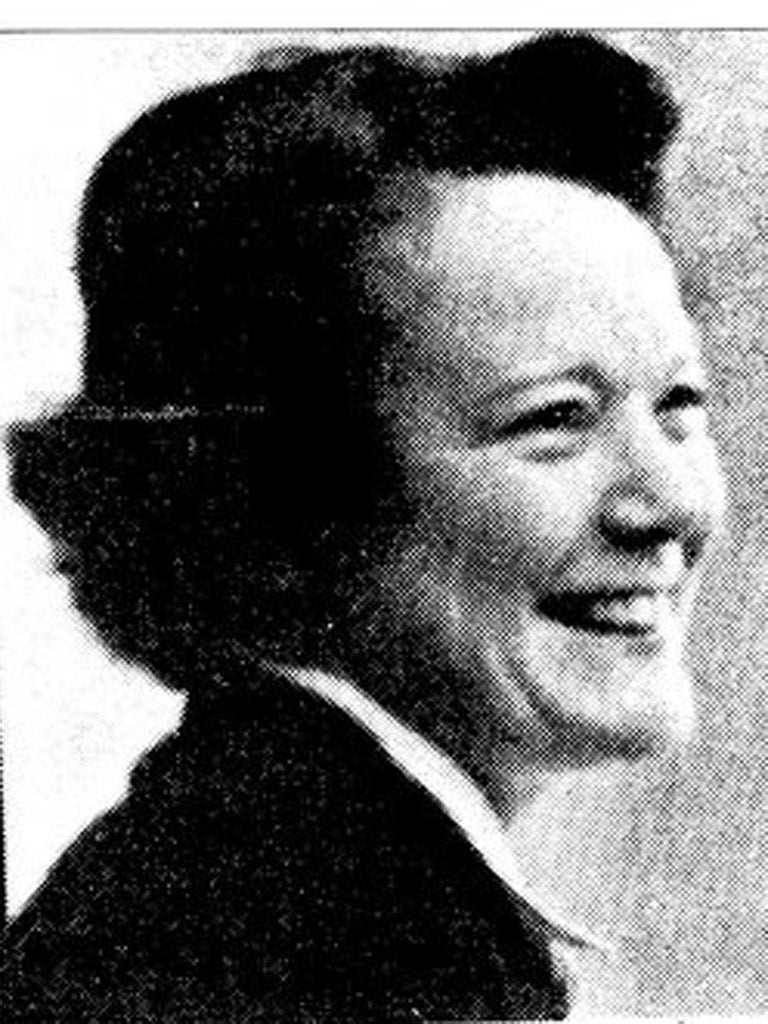
Helen Grant was a pugnacious fighter when it came to taking on the government and the boxing fraternity. She encountered opposition from both when she tried to warn of the dangers of Bovine Spongiform Encephalopathy, or BSE, crossing over to humans from animals, and of the long-term damage caused to the brain by boxing.
Grant, a consultant neuropathologist, firstly at the Middlesex Hospital and then at the Charing Cross Hospital in London, was one of the most prominent medical experts in the 1980s to warn that BSE – then identified only in animals – would cross to humans. A fatal neurodegenerative disease in cattle, which causes spongy degeneration in the brain and spinal cord, BSE was found to be most easily transmitted to human beings in the form of Creutzfeldt-Jakob disease, by eating food contaminated with the brain, spinal cord or digestive tract of infected carcasses.
Some 400,000 cattle infected with BSE were estimated as having entered the human food chain in the 1980s, and by June 1987, 240 cases of BSE had been reported to the Ministry of Agriculture and Fisheries. Grant and other scientists had publicly warned the Government that BSE could affect humans: six autopsies on CJD victims had been conducted by Grant, who had also reported on a similar number of cerebral brain autopsies. Through her own interest in slow viruses, she had become one of the few people to be aware of both scrapie, a fatal degenerative disease affecting sheep and goats, and CJD.
Her written request to the Prime Minister, Margaret Thatcher, to hold an inquiry into the dangers of contamination was ignored. She was horrified to be told by the Government that people had lived with scrapie for years "without any harm" and therefore would not have any trouble with BSE. Sheep brains, she pointed out, were not being used in any other part of the food chain.
She was contacted by slaughterhouse workers worried that they had not received any instructions from the Health and Safety Executive about what precautions they should take to avoid infection, and learned that cattle brains were being added to meat products like pies, pâtés and stock cubes. In February 1989 she appeared on the BBC warning that there was a risk of people being affected by the disease. "Who knows?" she said, "some of us may be incubating it already." Grant and other experts were subject to vicious attacks by government scientists and food producers. She refused to compromise her principles and looked on in what she described as "horror at how the good reputations of dissenting scientists in the field were systematically undermined".
She came under similar pressures in the early 1990s when she pointed out the damage to the brains of boxers by repeated blows, claiming that wearing a headguard did little to prevent the movement of the brain within the head. She had carried out an autopsy on the boxer Steve Watt, who died in 1986. Grant found that he had been suffering from brain damage for some time and that death was caused by the recurrence of an old injury. She remained a lifelong, passionate opponent of boxing.
Wendy, as she was known to all her family and friends, was born in Ealing in 1922. Her father, a former theological student and a First World War conscientious objector, had gone to prison for his principles. Her childhood was spent travelling with her parents, who were involved in relief agency work for refugees. She was educated partly in France, Vienna and New Zealand and on the family's return to this country in 1933, at Bedales, where she became head girl.
She studied at Cambridge and then at UCL, where she took a degree in medicine, eventually specialising in neuropathology. She joined the Middlesex Hospital in 1970 as consultant neuropathologist; in 1985 she moved to Charing Cross as a senior lecturer and honorary consultant.
Professor Peter Lantos, Emeritus Professor of Neuropathology at Kings, was seconded to work with Grant, who oversaw his PhD at the Middlesex in 1970, and remembers someone who had time for all her students. "She had the ability to see and make things crystal clear," he said. "She always had time for everyone." She was made a Fellow of the Royal College of Physicians in 1975 and her name is one of those featured on the Royal Society of Medicine's Wall of Honour.
Peta Steel
Helen (Wendy) Grant, neuropathologist: born Ealing 11 May 1922; married 1945 Alick Elithorn (divorced 1970; one son, one daughter deceased); died Dornoch, Scotland 14 March 2012.
Subscribe to Independent Premium to bookmark this article
Want to bookmark your favourite articles and stories to read or reference later? Start your Independent Premium subscription today.

Join our commenting forum
Join thought-provoking conversations, follow other Independent readers and see their replies